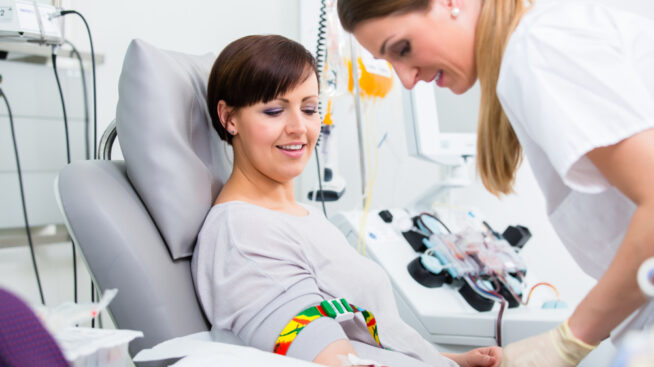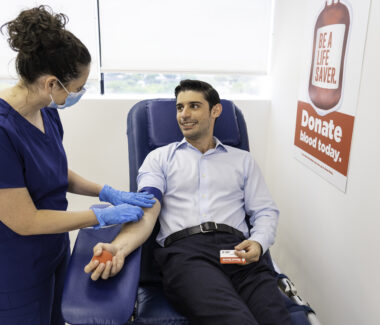Donating blood at your local Community Blood Center (CBC) is a safe, simple, and satisfying experience. Your donation helps give life to the millions of Americans each year who require blood transfusions during surgery, after an accident, or because they have a disease that requires blood components. There are many different ways to donate lifesaving blood products, including whole blood, platelet, plasma, and automated red cell donation. The process usually takes about 45-60 minutes.
What to Expect When You Give Blood
After your first donation, or upon request, you will receive an official CBC Donor ID Card. You may use this card as an acceptable form of identification when you donate blood, platelets, or plasma.

Types of Donations
Learn more about the different types of blood donations you can make based on your blood type.

Donation FAQs
Find answers to many of the questions you may have about donating blood and the blood donation process.

